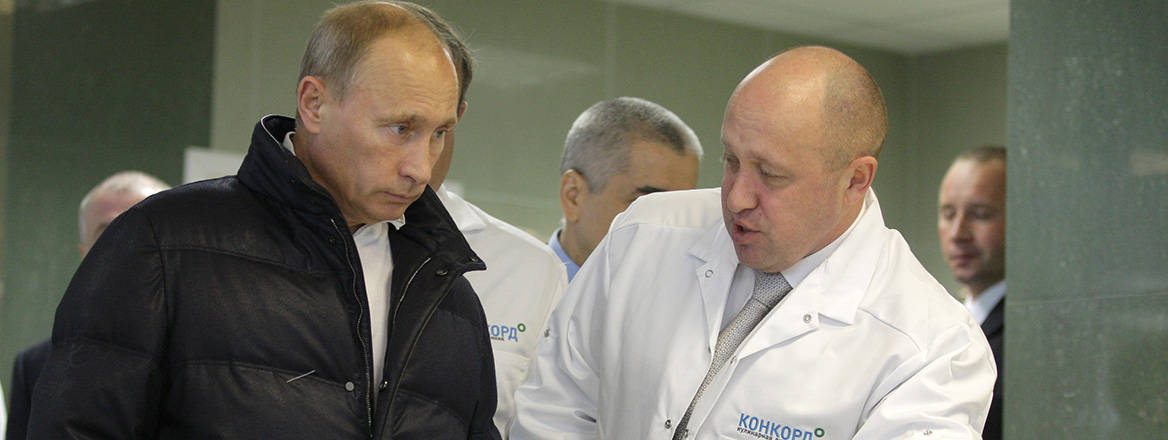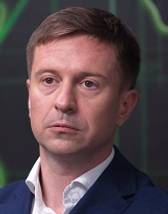Wagner’s Mystification: Why Putin Needs Prigozhin
In recent years, Russia has been actively using mercenaries and other irregulars in its operations. The nature of this phenomenon, together with the real goals pursued by the Russian leadership when they are used, deserves further examination.
The most well-known example of Russia’s use of mercenaries is the so-called ‘private military company’ the Wagner Group, which is associated with Russian businessman Yevgeny Prigozhin. Until 2014, Prigozhin was known only as the owner of a chain of high-end restaurants used by Putin for meetings with foreign dignitaries, which is why Prigozhin is still called ‘Putin's chef’. Wagner's mercenaries have played an active part in Russia’s operations in Africa and the Middle East, and with the beginning of the full-scale aggression against Ukraine, the Russian leadership commenced mass recruitment of criminals serving sentences for serious crimes, who could join Wagner and be sent to fight in Ukraine in exchange for a future amnesty for all crimes committed.
In the West, the Wagner Group is rightly considered guilty of numerous war crimes, and a number of countries have even recognised it as an international criminal and terrorist organisation, applying sanctions against Prigozhin and other persons associated with the group. In this regard, many observers and even officials mistakenly believe that Prigozhin has a high level of autonomy and can independently make decisions about the group and its application. In reality, ‘private military company’ Wagner is neither private nor a company – in Russia, the creation of private military companies is generally prohibited as they may threaten the integrity and security of the country, and this position remains unchanged as of February 2023 – and the real goal of the Russian government, which created this fake organisation, is to use it and Prigozhin as a cover for its own military and special operations. Such a cover-up allows the Kremlin to deny its own participation in such operations, as well as to avoid responsibility for the crimes committed during them. Oddly enough, this is also convenient for some Western countries, whose leaders prefer to avoid escalation with Moscow and therefore pretend to believe that, for example, it is Prigozhin – and not Putin – who is ousting them from Africa.
The use of Prigozhin as a cover for such operations began after the appointment of Sergei Shoigu to the position of defence minister in 2012. It was after this that companies related to Prigozhin began to provide various services to the defence ministry – in particular, becoming the main provider of communal services – the value of which in 2015 alone reached 40 billion rubles (at that time, about $800 million). Prior to this, Prigozhin had nothing to do with the defence field, and his companies had no competence in it. Despite the fact that Russian opposition politicians accused Shoigu and Prigozhin of creating this monopoly for purely corrupt purposes, the main motive was probably to create conditions for the transfer of budget funds to Prigozhin, which could later be used to finance the operations of Russian special services under the guise of the activities of the Wagner Group, the Internet Research Agency – responsible for operations of influence in other countries, including interference in US elections through the use of ‘troll factories’ and other internet technologies – and political technologists associated with Prigozhin; to provide assistance to pro-Russian politicians around the world; and to support other sensitive projects.
Many observers and even officials mistakenly believe that Prigozhin has a high level of autonomy and can independently make decisions about the group and its application
There is no doubt that Wagner’s participation in the war in Ukraine is also financed from the Russian state budget. During the past year of full-scale war in Ukraine, Prigozhin has received state contracts worth 91.5 billion rubles (about $1.3 billion). Considering the level of state funding that passes through Prigozhin, the number of Wagner's mercenaries (which reaches tens of thousands) and the presence of heavy weapons in these units – including tanks, artillery and even airplanes – it is difficult to believe not only in Prigozhin's independence as the Wagner Group’s commander, but also in his political independence.
The existence of public conflicts between Prigozhin and the defence ministry should therefore be perceived either as reflecting the desire of Prigozhin's political sponsors (most likely Yury Kovalchuk, the Russian oligarch closest to Putin, and Sergey Kiriyenko, the first deputy head of the presidential administration) to replace Shoigu and Chief of the General Staff Valery Gerasimov with their own protégés, or as a deliberate attempt to mislead the West about the existence of such a conflict and to build support for the legend of Prigozhin himself, both among external and internal audiences. Positioning Prigozhin as a possible political leader also benefits Putin personally, as it supports his strategic narrative that regime change in Russia would be bad for the West, given that even more aggressive individuals may come to power.
The views expressed in this Commentary are the author’s, and do not represent those of RUSI or any other institution.
Have an idea for a Commentary you’d like to write for us? Send a short pitch to commentaries@rusi.org and we’ll get back to you if it fits into our research interests. Full guidelines for contributors can be found here.
WRITTEN BY
Oleksandr V Danylyuk
RUSI Associate Fellow, Military Sciences
- Jim McLeanMedia Relations Manager+44 (0)7917 373 069JimMc@rusi.org


